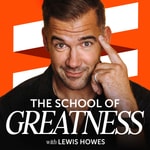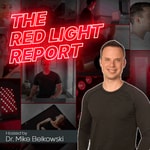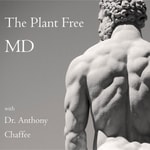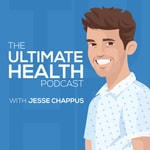Ricci Flow Nutrition Podcast – Détails, épisodes et analyse
Détails du podcast
Informations techniques et générales issues du flux RSS du podcast.
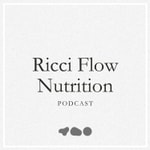
Ricci Flow Nutrition Podcast
Cameron Borg
Fréquence : 1 épisode/41j. Total Éps: 66

Welcome to the Ricci Flow Nutrition Podcast. This podcast is an effort to prioritise and understand the foundational aspects of health.
Classements récents
Dernières positions dans les classements Apple Podcasts et Spotify.
Apple Podcasts
🇬🇧 Grande Bretagne - alternativeHealth
19/07/2025#77🇬🇧 Grande Bretagne - alternativeHealth
11/07/2025#90🇩🇪 Allemagne - alternativeHealth
22/06/2025#97🇬🇧 Grande Bretagne - alternativeHealth
21/06/2025#92🇩🇪 Allemagne - alternativeHealth
21/06/2025#76🇩🇪 Allemagne - alternativeHealth
20/06/2025#49🇬🇧 Grande Bretagne - alternativeHealth
14/06/2025#83🇩🇪 Allemagne - alternativeHealth
14/06/2025#65🇩🇪 Allemagne - alternativeHealth
13/06/2025#47🇩🇪 Allemagne - alternativeHealth
12/06/2025#80
Spotify
Aucun classement récent disponible
Liens partagés entre épisodes et podcasts
Liens présents dans les descriptions d'épisodes et autres podcasts les utilisant également.
See all- https://www.stillmanwellness.com/
247 partages
- https://www.medcram.com/
218 partages
- https://www.biolight.shop/
127 partages
- https://www.instagram.com/ricciflownutrition
67 partages
- https://www.instagram.com/oxygenadvantage
65 partages
- https://www.instagram.com/busy_superhuman
61 partages
Qualité et score du flux RSS
Évaluation technique de la qualité et de la structure du flux RSS.
See allScore global : 47%
Historique des publications
Répartition mensuelle des publications d'épisodes au fil des années.
Gerald Pollack: Membranes, Charge Separation & ATP: Investigating Biology's Foundations
Épisode 52
jeudi 22 août 2024 • Durée 01:13:57
Gerald Pollack is a professor of bioengineering at the University of Washington. He is the Founding Editor-in-Chief of the journal, WATER; Executive Director of the Institute for Venture Science; and founder of the Annual Conference on the Physics, Chemistry, and Biology of Water. In this conversation, we focus on the shortcomings of staple ideas in biology such as cell membranes, ATP and ion channels. If these 'textbook' ideas are even slightly wrong, what are the implications for the rest of biology? There appear to be plenty of holes in the orthodox views that must be addressed with genuine investigation.
Follow Jerry
- Pollack Lab
- Books
Follow Me
Jack Kruse: Mate Selection, DNA, Bioelectricity & Thermodynamics
Épisode 51
samedi 10 août 2024 • Durée 02:08:22
Jack Kruse is a practising neurosurgeon with particular interest and expertise in quantum biology. In our previous podcast episode, Jack and I focused on the pillars that lay the foundation for all life on Earth; light, water and magnetism. In this conversation, we delved a little deeper into the esoteric ideas and discoveries that help to make sense of how life can thrive in such diverse conditions. We touch on olfaction’s role in mate selection, biophotons, magnetic fields in reactive oxygen mechanisms, the microbiome and much more.
Listen To The First Podcast With Jack Here
Follow Jack:
Follow Me:
Jack Kruse: Light, Water & Magnetism: The Foundation of Health
Épisode 42
dimanche 14 avril 2024 • Durée 02:13:33
Jack Kruse is a practising neurosurgeon with particular interest and expertise in quantum biology. Jack has been at the forefront of health for decades, prioritising the foundational aspects of what makes life possible on this planet; light, water and magnetism. His approach is extremely parsimonious and the story it weaves has more explanatory power than conventional approaches with regard to the decline in human health over the last century. Jack has uniquely tied in the fundamental science of physics and quantum mechanics to the world of biology, as it is the only way we can truly understand and begin to mend the problems we now face. Our conversation centres around the impacts of our non-native electromagnetic field exposures, the unique and stunning properties of water, and the semiconductor network that drives our physiology.
Jack's Work:
My Work:
John Mitrofanis: Biophotons, Internal Melanins & Photobiomodulation
Épisode 41
jeudi 11 avril 2024 • Durée 51:15
John Mitrofanis, PhD, is a world leading researcher on the impact of photobiomodulation and neurodegenerative disease. His work has been centred around seeking effective drug-free treatments and preventative measures for Parkinson’s and Alzheimer’s disease. A former professor of anatomy at the University of Sydney, John is now based in France, where he works at the biomedical research centre, Clinatec in Grenoble France. John is beginning exciting work on biophoton release, examining how photobiomodulation might alter the release of these photons from neurones and other cell types. In his book, Run in the Light, John outlines the most current understanding of the pathologies involved in Parkinson's disease, and how both exercise and photobiomodulation can be used as inexpensive, simple and essentially no-risk modalities to both prevent and delay the progression of the disease. John is extremely humble and open-minded; excellent qualities to explore deep scientific questions.
Listen to our previous conversation
John's Work
- Why and how does light therapy offer neuroprotection in Parkinson's disease?
- Does photobiomodulation require glucose to work effectively?
My Work
David Raubenheimer & Stephen Simpson: Nutritional Geometry & The Protein Leverage Hypothesis
Épisode 40
samedi 6 avril 2024 • Durée 59:06
David Raubenheimer is a Professor of Nutritional Ecology at the University of Sydney who specialises in nutritional and appetite regulation. His approach is comparative, using ecological and evolutionary diversity to understand these interactions. David’s studies of insects, fish, birds and a variety of mammals have helped develop a new approach to human nutrition-related problems, such as the dietary causes of obesity. Stephen Simpson is a Professor in the School of Life and Environmental Sciences at the University of Sydney. He has a background in experimental psychology, zoology and nutritional biology. Stephen is one of the world’s foremost entomologists and nutritional biologists, and in 2015 he was made a Companion of the Order of Australia for eminent service to biological and biomedical science.
David and Stephen have been working together for decades on a unifying approach to nutrition and energy balance. Their investigations began with the question of why animals in the wild are so capable of regulating their food intake as to avoid the conditions of excess that humans are experiencing at startling rates. This led them to investigate the impacts of various ratios of macronutrients on food intake in animals from locusts to primates. Their findings led them to formulate the “Protein Leverage Hypothesis”, which broadly states that animals prioritise the consumption of protein and eat various foods until a ‘target’ of protein is met.
David & Stephen's Work:
Obesity: the protein leverage hypothesis
Nutrition, ecology and nutritional ecology: toward an integrated framework
My Work:
Michael Crawford: DHA, Prenatal Nutrition & The Shrinking Brain
Épisode 39
mardi 19 mars 2024 • Durée 01:12:12
Michael Crawford, PhD, is a British researcher who focuses on the importance of marine fatty acids in human development and health outcomes. Michael got his PhD in 1960 in chemical pathology at the Royal Postgraduate Medical School, University of London. Since then, Michael has been a vital part of countless projects including setting up advanced medical schools and hospitals in Uganda, working with the Indonesian government on marine farming projects, all the while becoming the world’s expert in essential fatty acids.
Michael has a particular interest in the role and necessity of docosahexanoic acid (the omega-3 fatty acid DHA) and arachadonic acid in the evolution of the brain. Humans have the largest brain relative to body size, and our brains are made predominantly of highly unsaturated fatty acids; particularly DHA. Without the consistent consumption of seafood during our early evolution as we left the trees and departed our primate ancestors, we could never have developed the cranial capacity we eventually did. However, with shifting dietary patterns and destruction of marine habitats, the all-critical marine food web is being damaged. Micheal posits that this will spell disaster for humanity if we do not maintain a strong relationship with these essential marine nutrients.
Michael’s new book, “The Shrinking Brain” documents how our brains developed, what has gone wrong over the last century, and what we can do to optimally nourish ourselves and our progeny. He also has several recent publications regarding the quantum mechanical effects of DHA in signal transduction in the brain.
Michael's Work:
Docosahexaenoic Acid Explains the Unexplained in Visual Transduction
Follow My Work:
Sara Pugh: The Role of Light & Water in Biophysics
Épisode 38
mardi 12 mars 2024 • Durée 01:35:54
Sara Pugh, PhD, is a postdoctoral researcher with a background in molecular mechanisms, biochemistry, biophysics and genetics. Sara has become a thought leader in the area of optimal health and longevity. Her expertise in biochemistry, molecular mechanisms and quantum mechanical effects lends her unique perspective and agency to understand the biophysical interactions between humans and our environment. Sara is particularly interested and learned in light-life interactions, ketogenic-style diets, circadian rhythms and genetic mechanisms.
Sara is also well read in topics at the forefront of scientific enquiry including morphogenetic fields, quantum fields, hypnosis, telepathy and more. Her rigorous academic background has allowed her to approach these topics with a broader, more all-encompassing view that has helped her integrate these ideas within a solid scientific framework. Sara also has a phenomenal podcast of her own where she expertly delves into the minds of some of the most forward-thinking researchers in the world.
Sara's Work:
Website: https://busysuperhuman.com/
Youtube: https://www.youtube.com/channel/UC6cT7nP0suxhFV-zOTg0bOg
Twitter/X: https://twitter.com/Spugh01
Instagram: https://instagram.com/busy_superhuman
Facebook: https://facebook.com/busysuperhuman
TikTok: https://www.tiktok.com/@busysuperhuman?lang=en
Follow Me:
Website: https://www.ricciflownutrition.com/
Consultations: https://www.ricciflownutrition.com/contact
Instagram: https://www.instagram.com/ricciflownutrition/
Youtube: https://www.youtube.com/@RicciFlowNutrition
Spotify: https://open.spotify.com/show/2tfUhNXklHbwnyo2eNY5Hn
Apple Podcasts: https://podcasts.apple.com/us/podcast/ricci-flow-nutrition-podcast/id1583658048
Nina Jablonski: Biological & Social Impacts of Skin Color
Épisode 37
mardi 28 novembre 2023 • Durée 01:13:43
Nina G. Jablonski is an American anthropologist and palaeobiologist who’s work focusses on the social and biological meanings of skin color in humans. She completed her PhD in Anthropology in 1981 and she is currently an Evan Pugh University Professor at Pennsylvania State University. Her work spans broad yet intimately connected topics such as human evolution, human diversity, and racism. She was recently elected to the U.S. National Academy of Sciences and in 2009, she was elected to the American Philosophical Society.
-
Nina is the author of several books including “Living Color: The Biological and Social Meaning of Skin Color”, and “Skin: A Natural History” which examine the biological basis of skin pigmentation as well as the sociocultural implications of varying degrees of melanin density.
-
Timestamps
00:00:00 - Intro
00:01:32 - How Nina Started Studying Skin
00:11:45 - The Goldilocks Zone of UV Exposure
00:16:22 - Evolutionary Depigmentation Events
00:22:58 - Discussing Skin Pigmentation in the Medical Field
00:28:37 - Balancing Sun Exposure in Our Unnatural World
00:31:42 - Vitamin D or Sunlight?
00:39:32 - Epidemiology of Skin Cancers & Public Health Messaging
00:44:33 - How Pigmentation Impacts Addictive Behaviour Patterns
00:48:22 - Color-Based Discrimination
00:58:08 - Dissecting Race & Culture with Regard to Identity
01:01:28 - Importance of Early Childhood Education
01:05:08 - Categorical Thinking & Minimal Group Paradigm Bias
01:07:20 - Nina’s Current Projects
01:09:19 - Hair in Human Culture
01:12:59 - Outro
-
Follow Nina Here
-
Follow My Work
Stephanie Seneff: Glyphosate & Deuterium Synergy
Épisode 36
mardi 10 octobre 2023 • Durée 01:23:48
Stephanie Seneff, PhD, is a world-leading expert on the herbicide glyphosate and it’s host of detrimental effects on plants, animals and microbes. Her publications and book, “Toxic Legacy” have laid the foundation for understanding the implications of widespread use of this weed-killer, particularly as it pertains to developmental disorders and metabolic disorders. She has also contributed greatly in the fields of sulphur metabolism, statin drug side-effects, heavy metal toxicity and more.
-
Stephanie was the first guest I had on the podcast back in 2021, so it’s a real pleasure to be able to speak with her again and expand on what she’s been working on. In this conversation, we centre our discussion around deuterium; a heavy isotope of hydrogen. Having recently spoken with Gábor Somlyai, PhD, who is the father of deuterium science in biology, this conversation follows very naturally. I sincerely appreciate Stephanie’s work as she has put her reputation on the line many times to pursue interesting and fruitful ideas that often clash with mainstream dogma. I think many of her ideas will be proven eventually as they all follow an elegant logic.
-
Follow Stephanie's Work
-
Follow My Work
Gábor Somlyai: Deuterium Depletion & Defeating Cancer
Épisode 35
vendredi 22 septembre 2023 • Durée 01:10:31
Gábor Somlyai is a molecular biologist and world’s leading expert in the area of deuterium in biology. He has been working for over 30 years to research and publish his findings on the role of deuterium depletion in cancer.Gábor graduated as a biologist from the University of Szeged in 1982. He received a scholarship from the Hungarian Academy of Sciences while studying for his PhD and defended his thesis in molecular biology in 1988.
-
In the wake of the Hungarian Nobel-prize winning scientist Albert Szent-Györgyi – who said that the true cause of cancer should be looked for at the sub-molecular level – Gábor began his examining the biological importance of naturally occurring deuterium as a senior research fellow at the Hungarian Institute of Oncology in 1990.
-
In 1993 Gábor established HYD LLC. for Cancer Research and Drug Development to carry out cancer research and drug development based on the proprietary procedure called deuterium depletion. He has 2 books, ‘Defeating Cancer’, published in the year 2000, and ‘Deuterium Depletion: A New Way in Curing Cancer and Preserving Health’. Gábor is a holder of numerous international patents, an author of more than 40 scientific publications, and is a highly sought-after speaker at international conferences.
-
Gábor's Work:
Preventa Deuterium Depleted Water
Book: Deuterium Depletion: A New Way in Curing Cancer and Preserving Health
-
Follow My Work Here:
